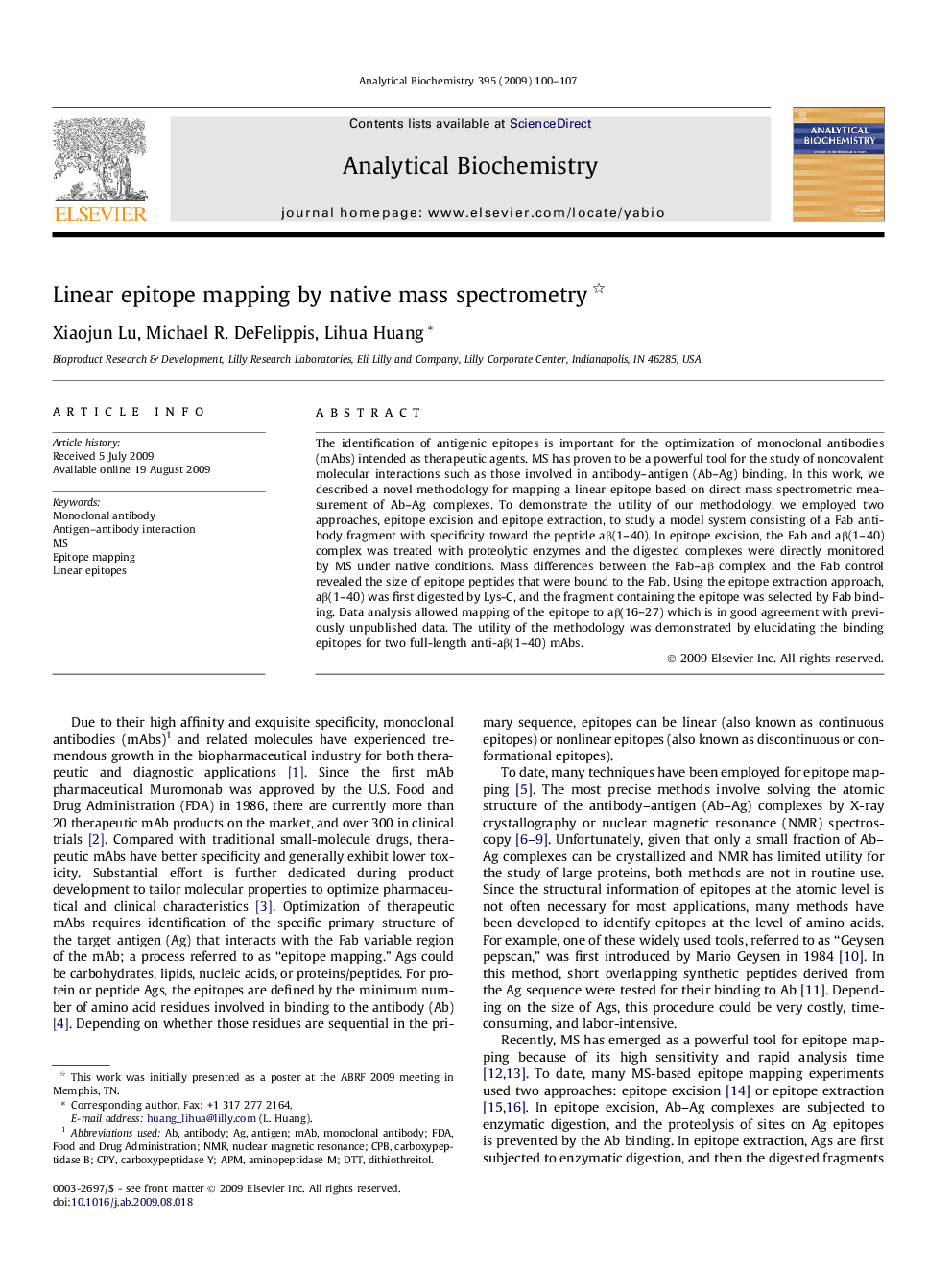| Article ID | Journal | Published Year | Pages | File Type |
|---|---|---|---|---|
| 1177031 | Analytical Biochemistry | 2009 | 8 Pages |
The identification of antigenic epitopes is important for the optimization of monoclonal antibodies (mAbs) intended as therapeutic agents. MS has proven to be a powerful tool for the study of noncovalent molecular interactions such as those involved in antibody–antigen (Ab–Ag) binding. In this work, we described a novel methodology for mapping a linear epitope based on direct mass spectrometric measurement of Ab–Ag complexes. To demonstrate the utility of our methodology, we employed two approaches, epitope excision and epitope extraction, to study a model system consisting of a Fab antibody fragment with specificity toward the peptide aβ(1–40). In epitope excision, the Fab and aβ(1–40) complex was treated with proteolytic enzymes and the digested complexes were directly monitored by MS under native conditions. Mass differences between the Fab–aβ complex and the Fab control revealed the size of epitope peptides that were bound to the Fab. Using the epitope extraction approach, aβ(1–40) was first digested by Lys-C, and the fragment containing the epitope was selected by Fab binding. Data analysis allowed mapping of the epitope to aβ(16–27) which is in good agreement with previously unpublished data. The utility of the methodology was demonstrated by elucidating the binding epitopes for two full-length anti-aβ(1–40) mAbs.
